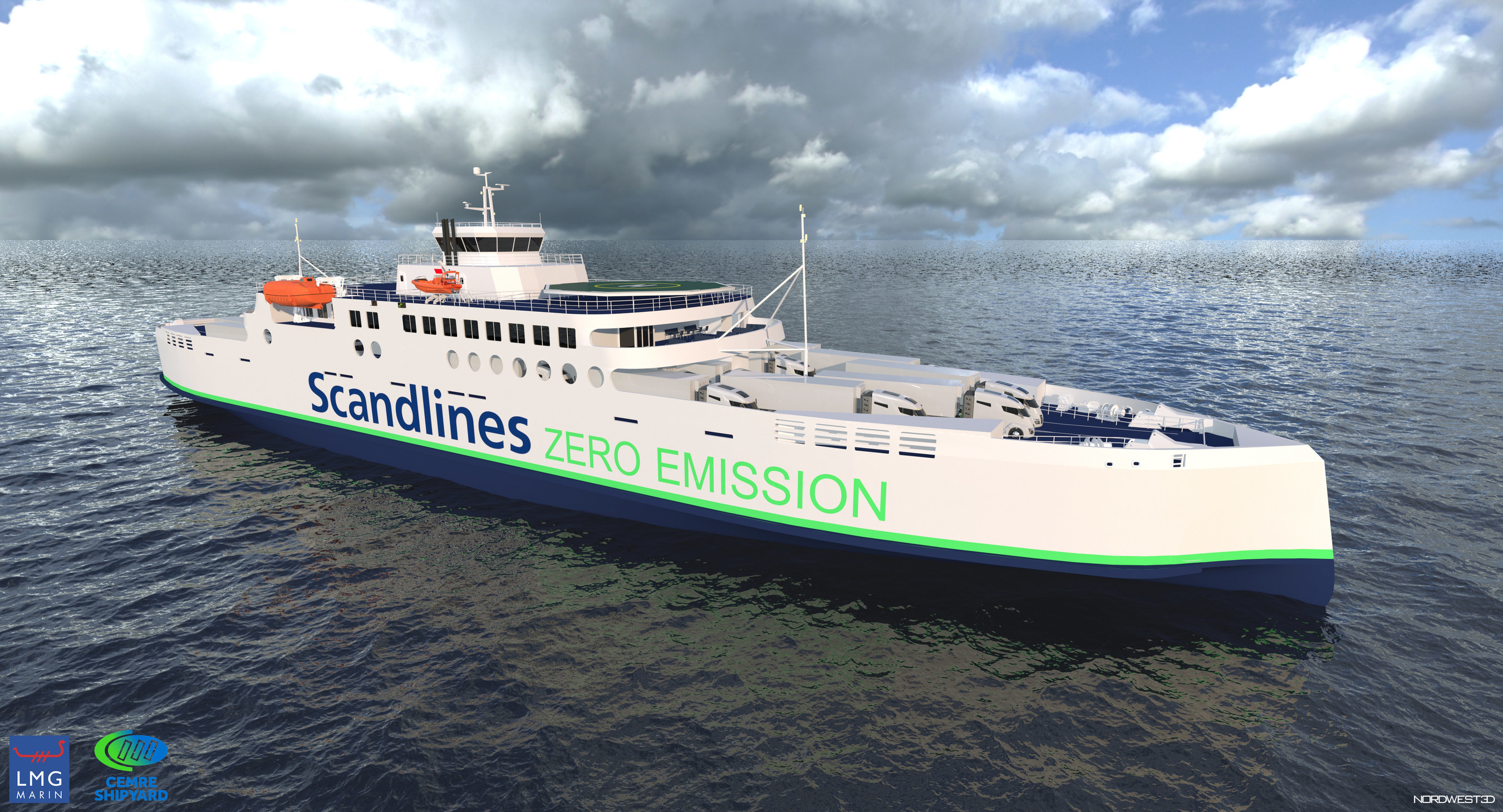- World's largest hybrid ferry will run on a Leclanché liquid-cooled, lithium-ion battery system, produced in Leclanché's European factories
- Scandlines PR24 will connect Puttgarden, on the German island of Fehmarn, and Rødby port on Lolland, Denmark – a 18.5 km distance
- Leclanché Marine Rack System will include its latest 65 Ah, high cycle life, fast charge battery cells for a 10-year service life
The Scandlines zero-emission ferry project, announced in November 2021 and which will result in the world's largest electric-powered hybrid ferry (click here for images), will run on an advanced 10 MWh lithium-ion battery energy storage system (BESS) from Leclanché.

Leclanché SA (SIX: LECN) is one of the world's leading energy storage solutions companies and a pioneering provider of lithium-ion battery powered marine battery systems for electric and hybrid maritime vessels. It joins a roster of renown companies selected to provide critical components, systems, and expertise to the Puttgarten Rødby 2024 or PR24 vessel including Norway's Kongsberg Maritime and Norwegian Electric Systems (NES). The ferry was designed by LMG Marin AS, Norway, and will be constructed at Cemre Shipyard in Turkey.
The "RoPax" or roll-on, roll-off freight ferry is expected to enter service in 2024. It will connect Puttgarden ferry harbour, on the German island of Fehmarn, with Rødby ferry harbour on the island of Lolland in Denmark – a distance of 18.5 km.
Battery Technology
The battery technology selected for the Scandlines PR24 project is among the most advanced and safe used in marine battery systems. Leclanché is one of the only battery system suppliers to manufacture its own lithium-ion battery cells to exacting standards in its German manufacturing facility. In addition, it builds modules on its state-of-the-art automated assembly line, in Yverdon, Switzerland. Leclanché's Marine Rack System (MRS) helps vessel owners and operators to meet or even surpass international marine regulations for SOx and NOx emissions.
The MRS BESS is modular and scalable and designed to the highest safety standards with its integrated cooling and active safety system. Leclanché's liquid-cooled battery systems provides numerous advantages over air-cooled batteries including improved safety, faster charging, longer lifetime, smaller footprint and lower energy consumption.
"Our team was highly impressed with Leclanché's technology and real-life maritime industry experience," said Christian Thiemer, Technical Superintendent, Scandlines. "Some of the critical factors impacting our selection included Leclanché's liquid-cooled battery architecture and well as the energy density of its cells. Together, in collaboration with our PR24 team of experienced providers, we are confident that our freight ferry will set the standard for powerful, sustainable and safe marine technology."
Leclanché will supply a state-of-the-art G\NMC battery system with a capacity of 10,028 kWh with a maximum voltage of 864 volts guaranteed for 10 years. The BESS uses a highly redundant architecture with 48 battery strings distributed across 8 switchboards. Delivery will begin in January 2023.
Anil Srivastava, CEO of Leclanché, said: "We are extremely gratified with our selection by Scandlines and NES as the critical battery system provider for the prestigious Puttgarden Rødby 2024 hybrid freight ferry project.
"Our team has been delivering large capacity marine battery systems for customers as diverse as Grimaldi Lines, Damen and Wasaline — and breakthrough projects, including the e-ferry Ellen, funded by the municipality of Aerø, Denmark and the European Union as well as the recently launched Yara Birkeland, the world's first autonomous and fully electric container ship. We look forward to a long-term partnership with Scandlines to fulfill our common vision of promoting electric and hybrid vessels, operating with green power, in support of a sustainable future."
The Scandlines zero direct emission freight ferry will be 147.4 meters long, 25.4 meters wide and 5.3 meters design draft. The double ended ferry's freight capacity will be 66 freight units carrying a maximum of 140 passengers at a 10-knot service speed. As a hybrid ferry, her crossing time between the two ports will be 45 minutes. In fully electric mode, crossing time is 70 minutes and the ferry is emission-free.